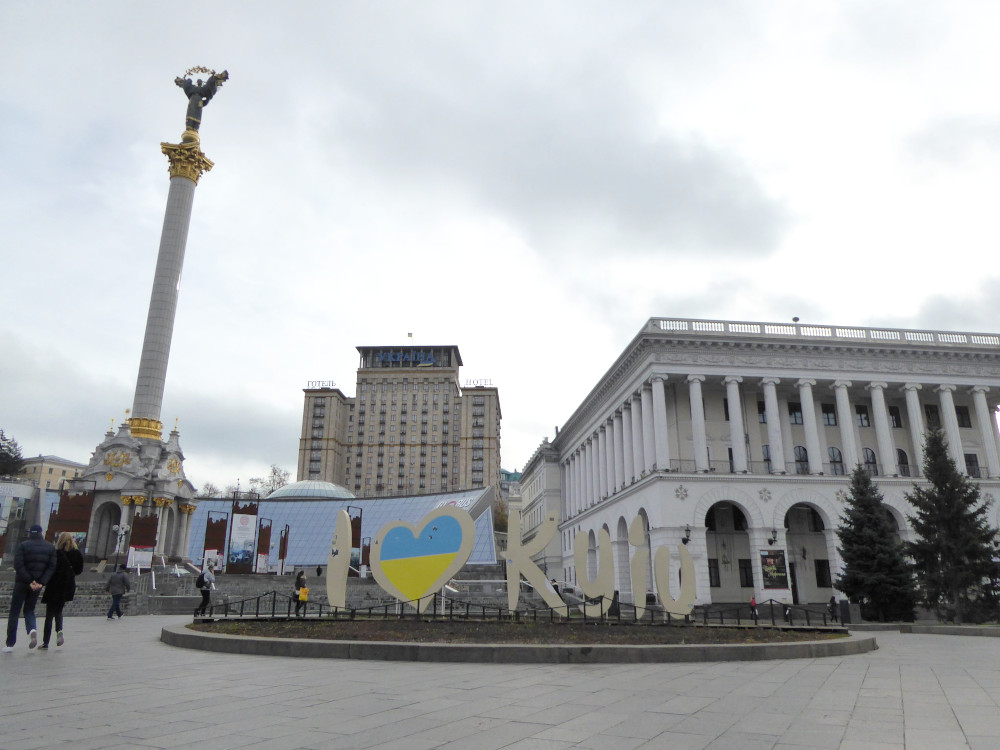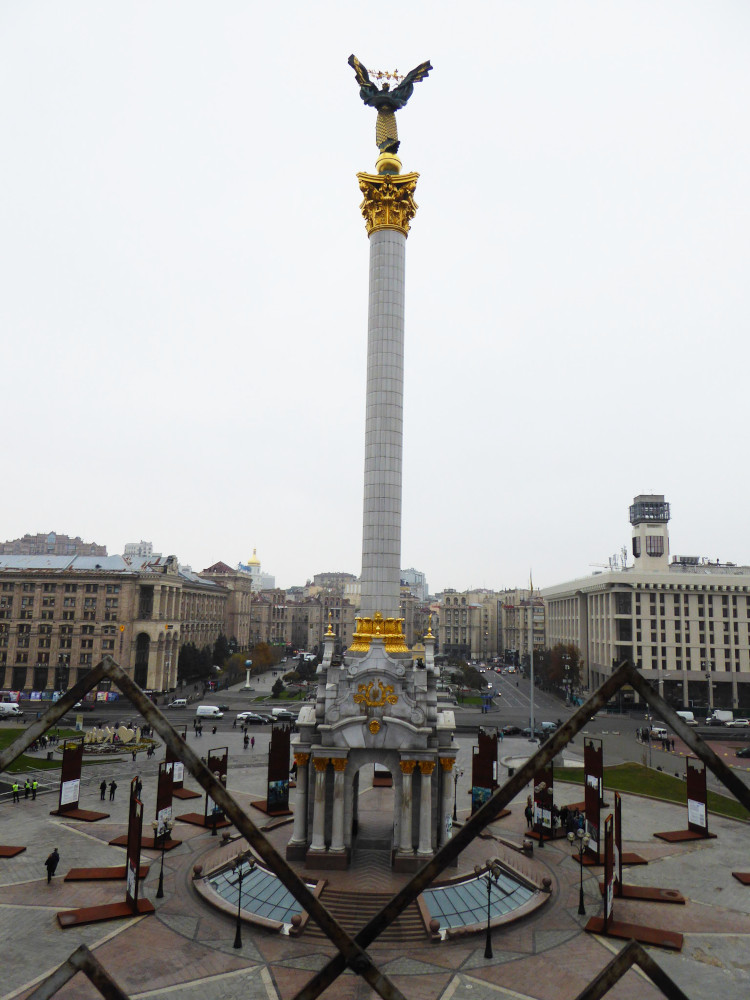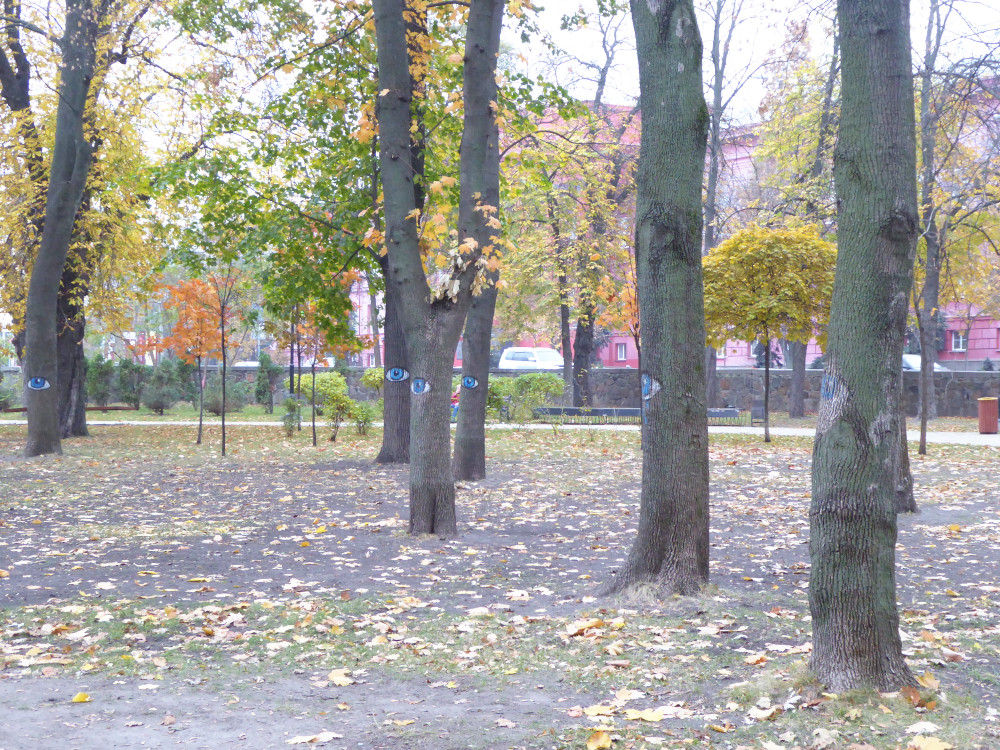Well, it’s happening. After weeks of rumours and whispers and threats, Russia has invaded Ukraine. I’ve lived in the same world as plenty of wars – two of my friends were sent to fight in a couple of them – but none have been as near as this one or as personal. War in Europe. In the 21st century. In a country I’ve been to, waged by another country I’ve been to.

I’m not the right person to attempt to give you political analysis – exactly what Putin’s thinking, what he wants, why he wants it and so on, what the outcome might be – but perhaps I can tell you a little about Ukraine. There’s no real coherence to this. Mostly I just want to get across that while it might not look like it, Russia is the baby brother fighting the big brother.

I went to Kyiv in 2018 and yes, I thoroughly embraced the Ukrainian spelling of the city. I’m not entirely sure why I went there, although the cheap flight and lack of entry visa requirements were definitely a factor. It may have been as simple as a Skyscanner “everywhere” search but given that its language uses the Cyrillic alphabet, whatever my reason for going there in the first place, I soon began to think of it as practice for a big trip to Russia that I hadn’t been brave enough to do at that point. It’s very easy to see Ukraine as Russia-lite – there’s clearly a long shared history, a shared culture, a shared language.

And now I’ve been to both, I can confirm that yes, there are similarities. The two languages are not the same, but there’s enough crossover to get by, like with Swedish and Norwegian. Kyiv has a similar architectural style to Moscow, including a mini version of Stalin’s Seven Sisters (you’ll see it in all the news reports over the next few days; it’s the hotel where I stayed and it forms the background to Kyiv news reports in the same way that the Houses of Parliament do for London ones). Its metro is a carbon copy of Moscow’s.

As I spent my five or so days there, visiting places I’d never heard of, seeing more and more churches, doing the reading, I realised two things. The first was that Ukraine had a full-scale history-making government-toppling revolution just four years previously, back in 2014, and I never knew a thing about it. The second was that Ukraine has the far older history and culture and if anything, Russia is the spin-off. Our modern idea of where the real power lies seems to be generally backwards compared to history: for example, tiny insignificant can’t-find-it-on-a-map Lithuania was a massive European superpower in the Middle Ages. And similarly with Kyiv; historically it’s far more significant and far more powerful than Moscow. There I am, strolling in thinking of it as Russia-lite, practice for Russia, and that’s the opposite of the truth.

For all the similarities, I felt like there was a different vibe in Kyiv to any city I visited in Russia. In some ways, Kyiv felt older – there are people on the streets with monkeys trying to persuade passers-by and tourists to pay for photos with them, for example. That’s a barbaric relic of the past in western Europe now and I never saw anything like it in Russia. It felt like it was new to being a modern twenty-first century city and was still figuring that out. I got a similar feeling in Bucharest, another ex-Soviet capital that’s only just starting to embrace its independence. But I didn’t feel it in the Baltic capitals, all of which felt like they thoroughly and loudly celebrated their pre-USSR existences, making their medieval old towns the centrepiece and presenting their older history to the world. There’s clearly plenty of new and modern attitude to Kyiv and there’s clearly plenty of ancient and religious attitude but that Soviet period is sitting there awkwardly.

I felt a lot of that history as I wandered the city, and I was there in tourist mode, not in cultural discovery mode. You can’t help but learn about the Revolution of Dignity when your hotel overlooks it and was the backdrop to it. You can’t help but learn about Kyiv’s significance as a major religious centre when you discover a special church around almost literally every corner. You can’t help but learn about the Terror-Famine when you encounter a massive monument to it as you’re enjoying parks and views. This is a place where things happened, major things. It’s not just a small extension of its huge neighbour.

One thing that surprised me about Russia was how prominent its Soviet era was. There are hammer-and-sickle symbols everywhere and every town has a Lenin Street. In Ukraine, all that is gone. Statues toppled and replaced, streets renamed, symbols removed (except in Pripyat, which is frozen in time in an utterly different way). Having very quickly become accustomed to that in Kyiv the previous year, it felt weird and almost aggressive to have it all front and centre in Russia.

I know that in recent history, it’s Moscow that’s gained the upper hand but Ukraine’s history is of a powerful nation with a powerful city at its heart. A lot of what we think is Russian about Russia ultimately came out of Ukraine. I feel like I want to follow that sentence with something like “so I’m sure Ukraine will be just fine and will win this war Putin’s just waged on it” but I’m far from sure. Again, not the political analyst around here but over the years, Russia has become the more powerful nation and even with the EU and NATO and everyone else behind Ukraine, there’s no guarantee who will win, and regardless of who wins, the war within its borders will be devastating.

I am currently learning Russian – today is week six of twelve of my Russian for Beginners Module 1 course – and I’m very enthusiastic and very excited, enjoying it very much and talking about it a lot. Just before I finish this post, I want to make it absolutely clear that I am not on Russia’s side here. I am very much on Ukraine’s side. Господин Путин, пожалуйста, оставьте Украину в покое и идите домой.
